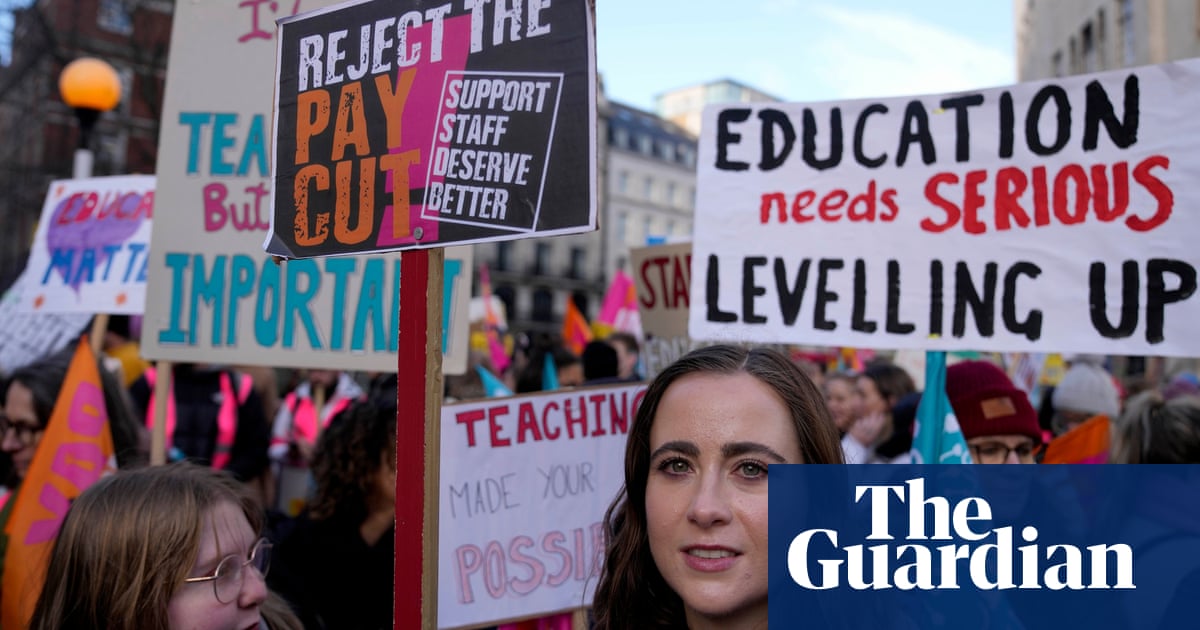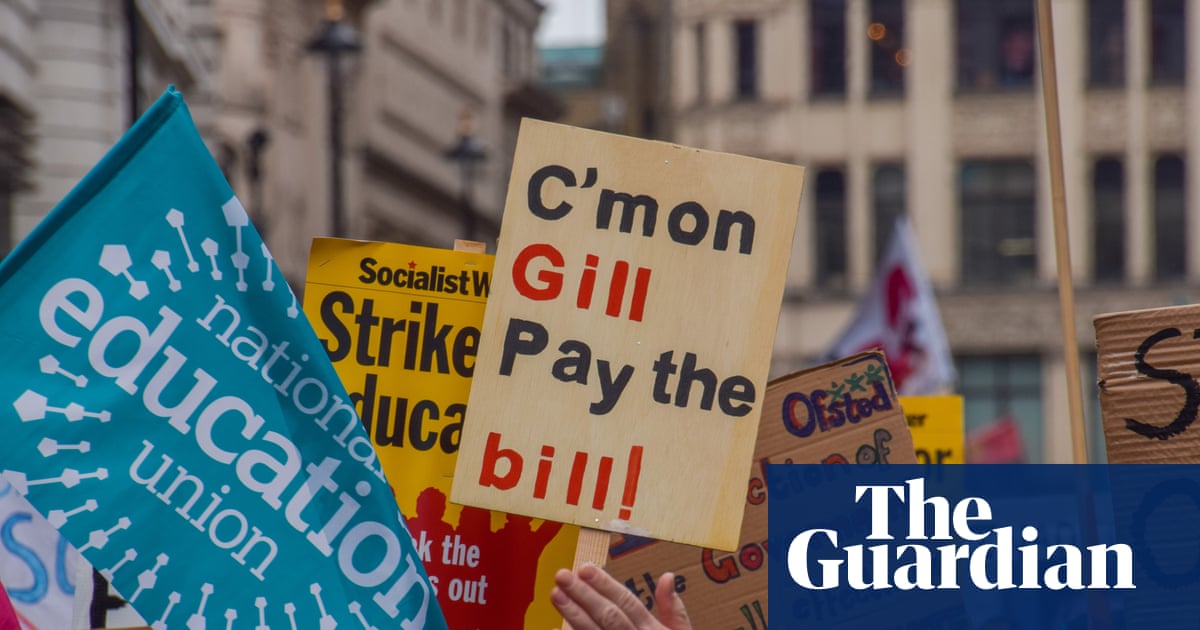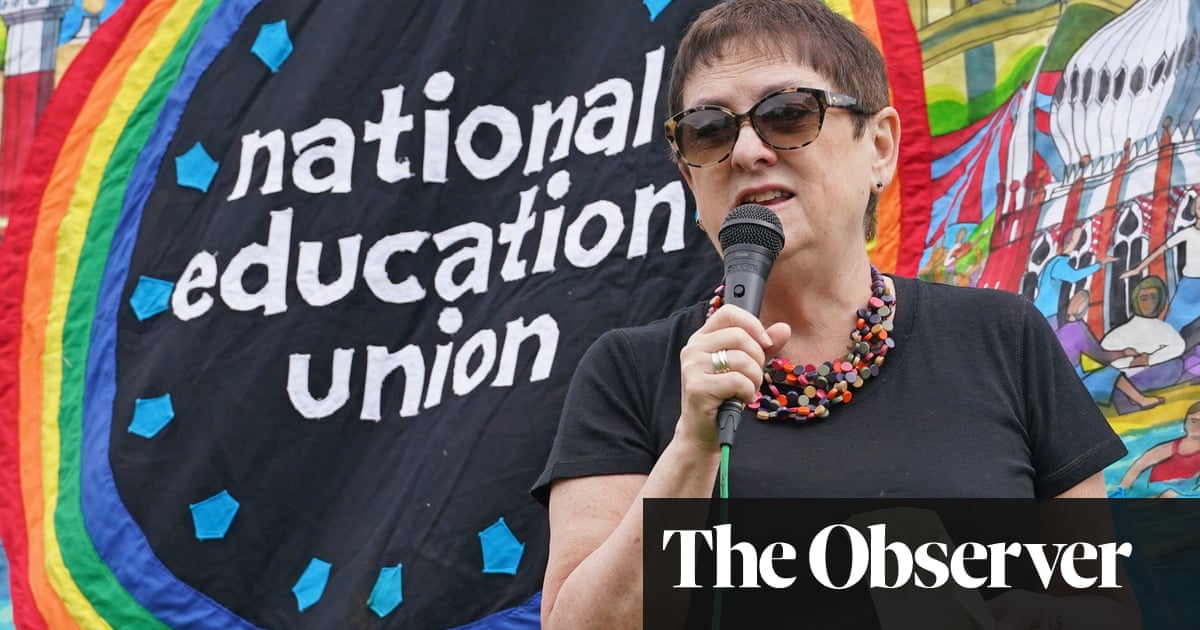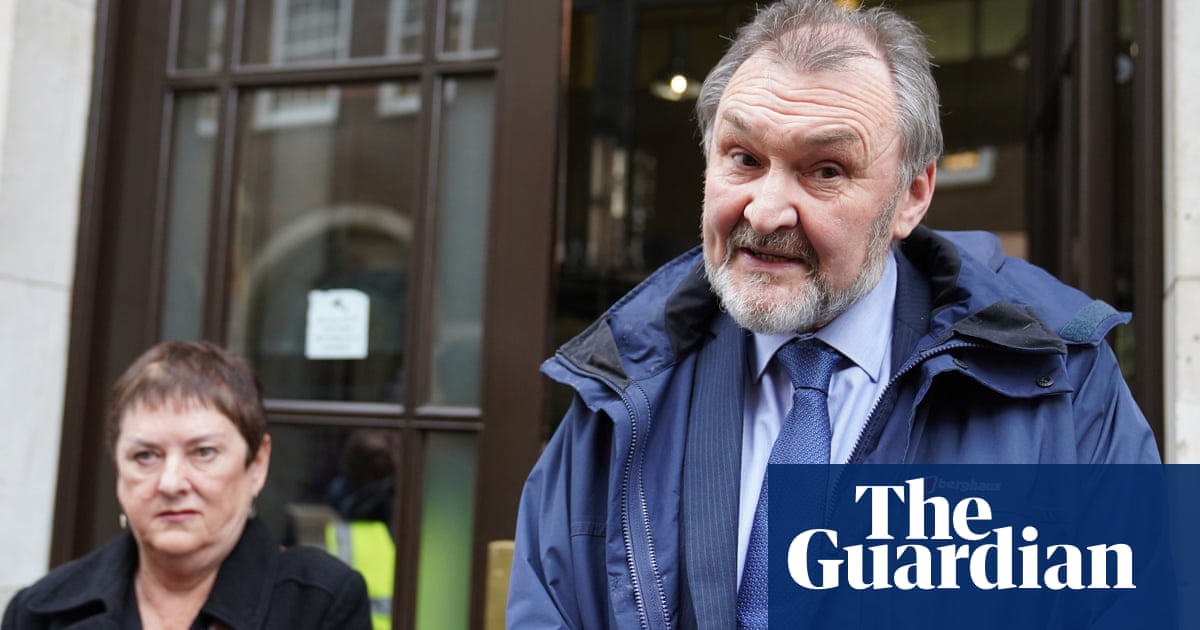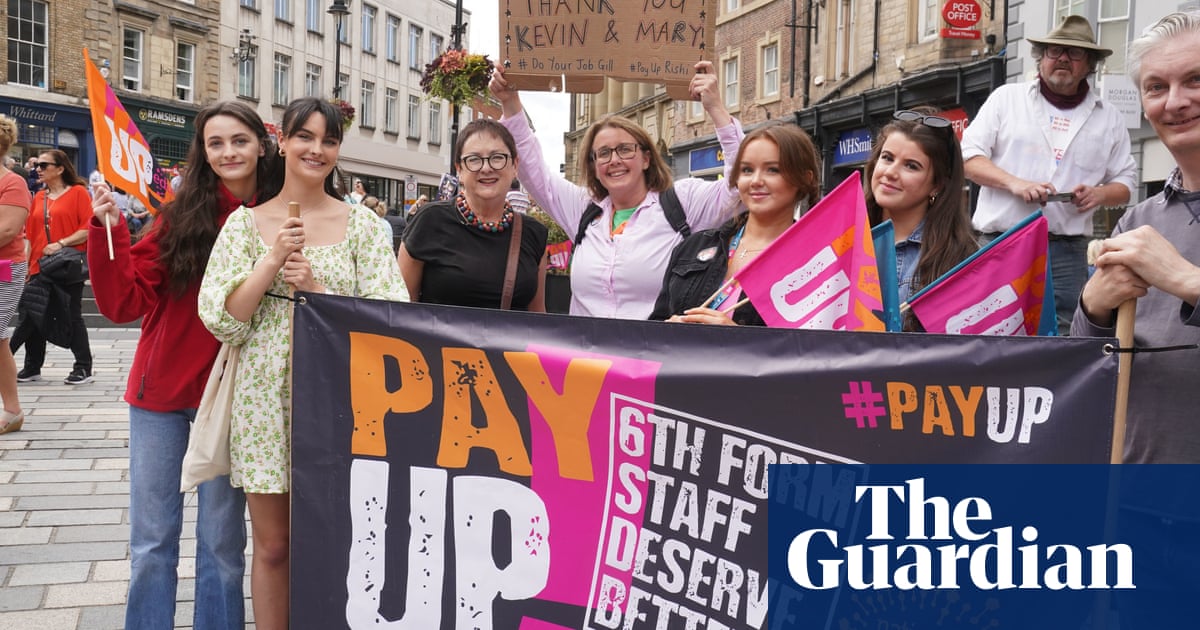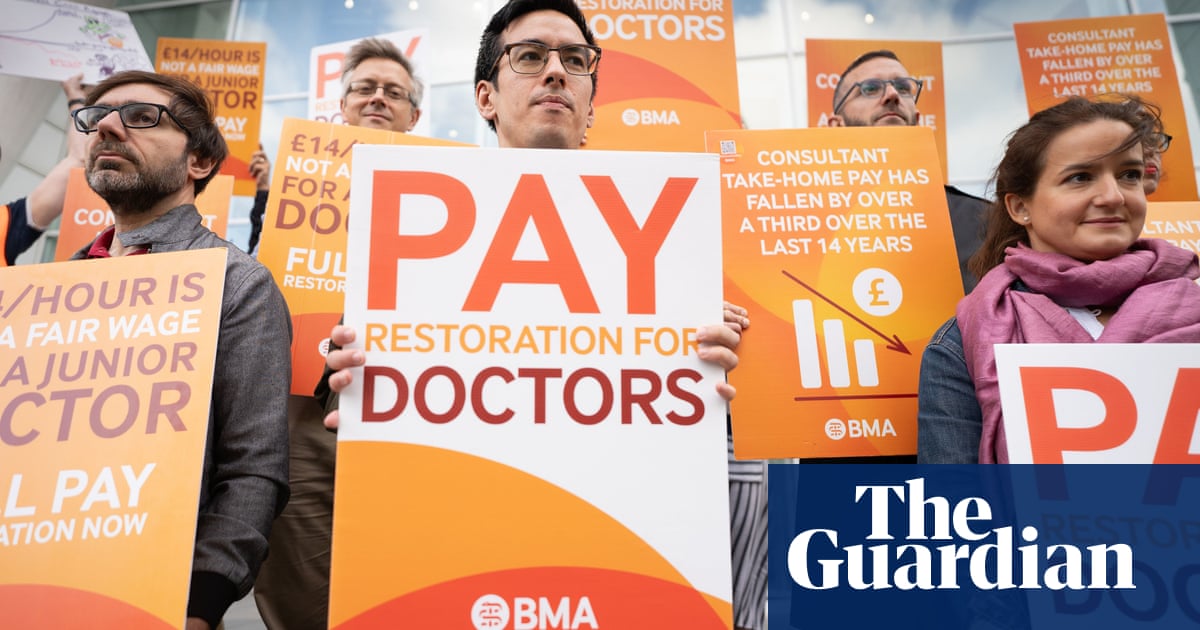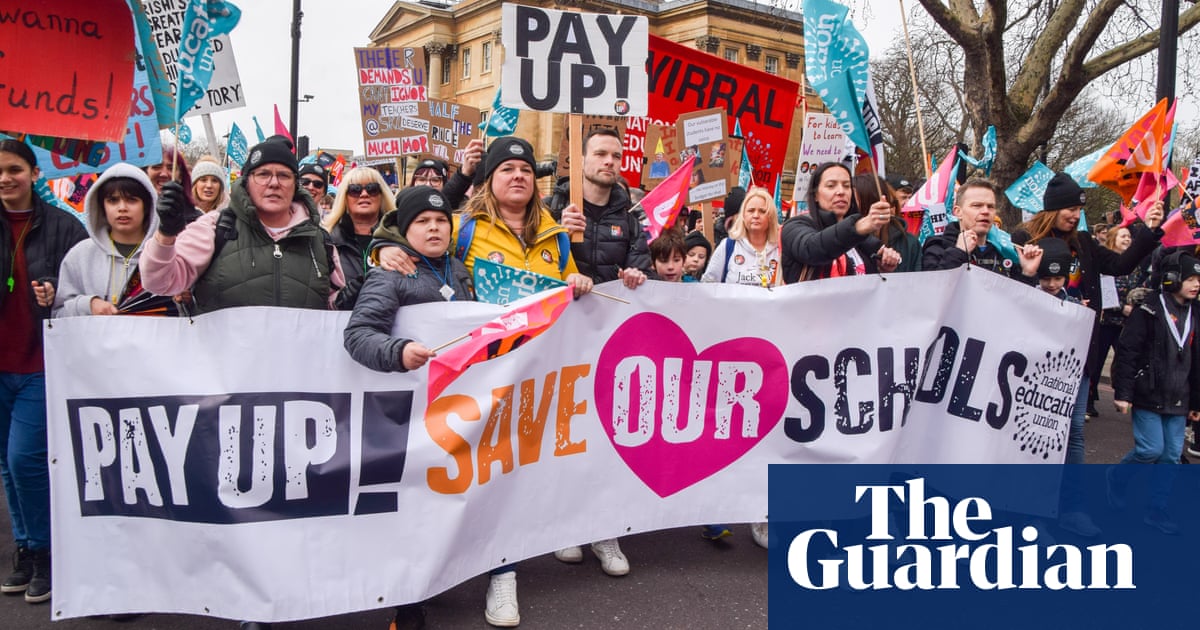
Charlotte Lawrence has been a primary school teacher for 14 years and has one word for the government’s latest pay offer for teachers in England: insulting.
“The government hasn’t listened,” said Lawrence, a delegate at the National Education Union’s annual conference in Harrogate. “When the strike ballot was carried, I thought the government would see that teachers are serious and start to negotiate. But it just hasn’t happened.”
Lawrence and other teachers at the conference say pay alone is not what drove 98% of nearly 200,000 NEU members to reject the offer. What has angered them is that school budgets would be expected to fund most of the pay increase – forcing teachers to choose between their own spending and resources and staff for their pupils. Teachers outside the conference chanted: “Hey, Gill, now it’s time to pay the bill,” in a message to the education secretary, Gillian Keegan.
“I know a school in Portsmouth that has 10 pencils to last until the end of the academic year,” said Lawrence, who worries that some school budgets are so tightly stretched that having to find even part of the pay rise promised by the government would be too difficult.
“As a profession we need well-remunerated teachers and well-funded schools. We should be able to have both.”
Laura Beckham, a special needs teacher in Consett, County Durham, said it was insulting that any pay rise was not being fully funded, especially for schools that were already struggling.
Her school’s building is badly in need of refurbishment and expansion, having 100 pupils with special educational needs and disabilities despite having capacity for 64, with wheelchairs having to be stacked in the corridors to make room.
“If it’s an unfunded pay rise then I’m going to lose teaching assistants,” Beckham said. “I can’t afford to lose teaching assistants.”
The government’s pay offer was a £1,000 one-off payment for the current school year, and a pay rise for 2023-24 that amounted to 4.3% for experienced teachers such as Beckham and Lawrence, but more for newly qualified teachers, with starting salaries rising to £30,000.
But only the one-off payment and a small portion of the pay rise from September would be funded by new money from the government. The rest would be from existing budgets, which the government argues have room to afford it because of the additional £2.4bn being allocated nationally in each of the next two years.
Natalie Perera, the chief executive of the Education Policy Institute, said that even after the extra funding, the government’s analysis showed there was only just about enough headroom to cover the current pay offer and the increased school costs arising from inflation, while other services are being slashed.
“It’s likely that school leaders and teachers are not just worried about their pay, but also about having enough resources to support pupils’ education and wellbeing, particularly for the most vulnerable and disadvantaged,” Perera said.
The prime minister’s official spokesperson said: “We remain open to further discussions but we felt this was a fair and reasonable offer. As it stands, now that the membership with the NEU have voted against it, talks on pay or the setting of pay will fall to the independent pay review body.”
But Lawrence, like many of her colleagues in Harrogate, was buoyed up by the overwhelming vote against the government’s offer: “The message is that we are united – and we don’t have a choice.”




